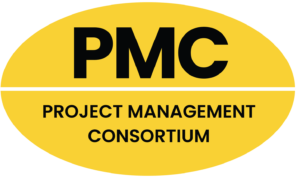The construction industry has been recognized for improving safety at project sites, but we must also escalate efforts to address the health and well-being of construction workers. Long hours, a physically demanding job in a highly competitive environment, seasonal layoffs, and potential exposure to harmful substances can lead to workers developing serious health problems. The impact on workers’ health alone is cause for concern, but an ailing workforce can cause a lot of pain for a company’s bottom-line too. As an example of improving access to healthcare, healthcare telemedicine can offer workers convenient ways to consult with medical professionals remotely, potentially addressing health issues before they become more serious.
To illustrate the severity of this problem, a National Council of Compensation study of workers’ compensation claims in construction found that the number of claims with substance abuse quadrupled from 2002 to 2009, and claims with obesity, diabetes, hypertension and other diseases had tripled during this same period.
This problem exacerbates when workers need days or weeks to recover from illnesses from job-related hazards resulting in productivity losses, project delays, and other costly outcomes.
Some of the most significant health threats facing construction workers are obesity, dehydration, air quality, and mental stress.
Worker Obesity — A Weighty Matter
Obesity is a serious and growing health issue affecting workers, with an estimated 43 percent of construction workers suffering from obesity compared to 35 percent of other workers. There is evidence that obesity, defined as a person with a body mass index of 30 or greater, increases the risk for work-related injuries in construction workers.
Being overweight can produce a host of other health issues, including coronary heart disease, high blood pressure, diabetes, and breathing problems. For specialized assistance, consider Obesity treatment Nqmis.
It can also lead to depression, low self-esteem, and other emotional issues.
Construction workers are more susceptible to significant weight gain than the general population, mainly due to unhealthy food options, much of which are available at food trucks parked at job sites. The trucks often serve hamburgers, fries, tacos, doughnuts, and other calorie-laden food to workers, leading to their expanding waistlines.
Weight-management solutions include providing healthy food options, such as leaner meats, fruits, and vegetables, educational resources on healthy eating, expanding food storage at job sites, and increasing the availability of food and beverages low in sugar and high in protein.
Beck has initiated various programs to help employees keep their weight at healthy levels. These include weight-loss programs, employee recreational activities, electronic fitness tracking devices, and a gym rebate program that offers up to $350 per year to qualifying employees.
Dehydration Poses Harmful Threat to Workers
Dehydration is another common health issue for construction workers, especially when hard physical labor occurs during hot weather. Dehydration can lead to life-threatening health complications if the body does not get enough fluids to function normally. Workers with chronic illnesses, such as untreated diabetes and kidney disease, or those who take medications that increase urination, can be more susceptible to dehydration. To avoid dehydration while working outside in high temperatures, it’s recommended to drink at least one cup of water every 15 to 20 minutes per hour and eliminate energy drinks and other highly caffeinated beverages.
Reducing Worker Exposure to Toxic Substances
Exposure to harmful chemicals used in building materials is also a concern. The material transparency movement has taken steps in recent years to disclose and reduce emissions from building materials to limit exposure to these substances at project sites.
The industry has focused on volatile organic compounds (VOCs), a long list of chemicals that evaporate in the indoor air under normal temperature conditions, for years, but more effort is required to reduce workers’ exposure to harmful substances further. Exposure to low levels of VOCs has immediate, short-term effects that include irritation of the eyes, nose, and throat, headaches, dizziness, and fatigue. Long-term exposure to VOCs has been associated with cancer and other diseases. The EPA also has listed asbestos, pesticides, radon, paint dust, and other indoor air pollutants that can affect workers’ health.
The International Living Future Institute (IFLI), Green Screen For Safer Chemicals, the Health Product Declaration (HPD) Collaborative, and other industry watchdog organizations play a vital role in developing rigorous standards for the industry to follow and to disclose and report harmful chemicals and substances used in building materials. For example, the IFLI created The Red List that identifies the “worst in class” chemicals, elements, and materials, known to pose the most significant health risks to humans and the environment.
To address these concerns, Beck signed the Living Product 50 Pledge and is a member of the Texas Materials Initiative. Our work with these groups advocates for material transparency pushes for better and safer products and helps us continuously specify products that are better for human and environmental health.
As part of Building Green’s Sustainable Construction Leaders group, Beck recently signed the Contractors Commitment developed as a framework to help construction firms improve jobsite wellness, materials selection, carbon reduction, and waste and water management.
Job Demands Can Impact Mental Health
The demands of construction work can take a heavy toll on workers’ mental health, particularly during the pandemic, which has triggered a high prevalence of emotional health issues globally.
The CDC released a study that found the construction sector has one of the highest suicide rates of all industries, and an estimated one out of five workers reported struggles with mental health issues.
Many construction workers experiencing mental health issues avoid confiding in family, friends, co-workers, or health professionals about their problems due to the industry’s ingrained machismo culture. An essential cultural shift needs to focus on changing workers’ views on treatment for mental health to be as accepted and as important as treating physical illness or injury.
Chronic job-related stress can cause or intensify many physical health problems, ranging from cardiovascular disease to gastrointestinal ailments. Long-term stress may even lead to serious personality disorders.
However, the industry response to the rising incidence of stress, anxiety, and depression among construction workers has lagged behind regulations and monitoring for physical safety.
We expect it will change as more firms increase educational awareness programs, provide company-paid benefits for counseling and other resources to help workers reduce job-related stress and emotional health issues.
The Beck Group regularly sends information on mental health and other health-related topics to let employees know that the company cares about their health on and off the job. The company also has improved employees’ mental healthcare benefits, participates in suicide prevention for men, and other activities to promote better mental health.
Improving Social Equity
In addition to physical and mental health, social equity plays a vital role in overall well-being by identifying disparities among workers and meeting economic needs.
Social equity is accomplished by paying wages and offering benefits that meet or exceed the prevailing wage determined by federal and state laws. Other opportunities include providing supplemental training to enhance job skills or life-skills training such as GED test preparation, English as a second language course, financial literacy, debt management, and other educational opportunities.
The construction industry has made measurable gains to improve job site safety. Still, those same efforts must work in a holistic way to address workers’ health and well-being to ensure a thriving industry and enhance the quality of life for its workers, families, and communities.
The author is Natalie Terrill Director of Sustainability at The Beck Group, an integrated design-build firm.










 The 2024 virtual Men’s Round Table will be held Q4, 2024, date TBD.
The 2024 virtual Men’s Round Table will be held Q4, 2024, date TBD.













